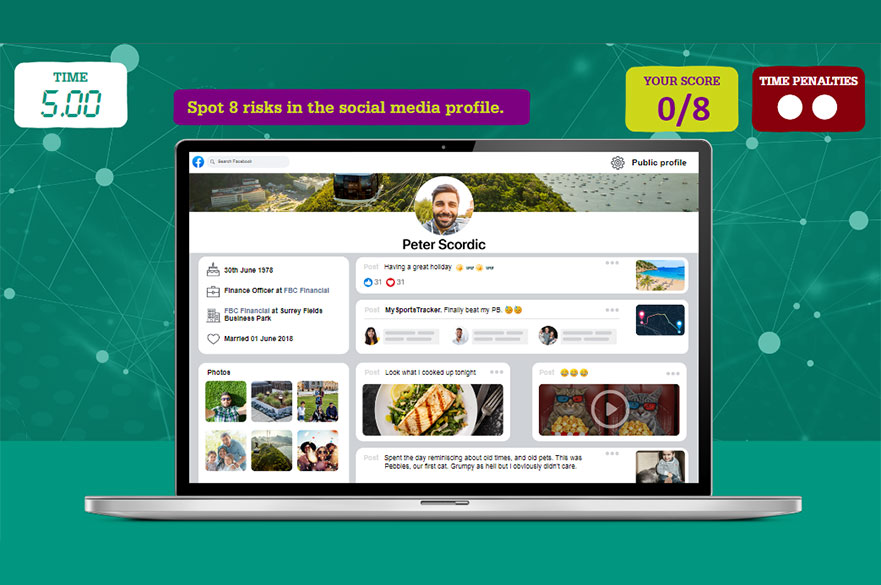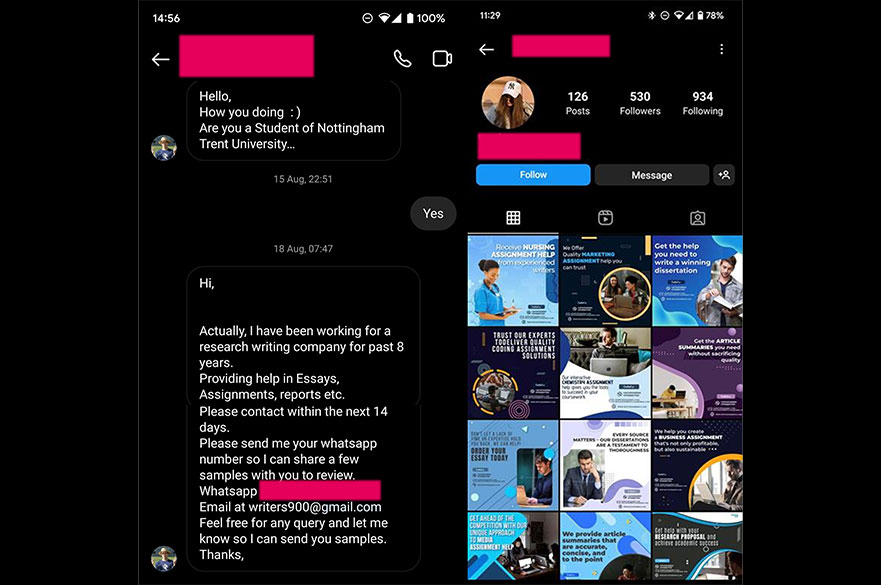Using social media safely
Published: 04/10/2023
We all love social media platforms like Facebook, Instagram, Twitter and TikTok. They are great for staying connected with friends, networking and are entertaining.

However, it’s crucial that we understand how to keep ourselves safe while still enjoying the benefits of them. In this article, we will explore some essential tips and practices for staying safe online.
You can also test out your knowledge with our social media harvesting game.
1) Be mindful of what you share
Your personal info
Don’t share information you use in your password or security questions – like your mother’s maiden name, your pet's name, or your first car. This includes quizzes that get sent around online.
This information can be harvested by hackers and scammers to be used against you.
Your location
There is no need to share the exact location of where you live in your posts. Keep it vague! Use ‘Nottingham, UK’ rather than a precise location like your street or accommodation halls.
Watch out when using fitness apps, some can automatically share location information such as a running or cycling route.
2) Make your accounts private
You should review and adjust your privacy settings on each social media platform. Limit who can see your posts, profile information, and contact details. Remember, the default settings may not always prioritise your privacy.
Most social media platforms now allow you to lockdown your account so that your posts are only visible to those you have permitted, however you must make sure that any account you add belongs to someone you know and is not an impersonator. Periodically review your friends or followers list and remove any accounts that seem suspicious.

3) Know who you're talking to
Social media is full of people pretending to be someone they’re not. Some pretend to be celebrities, hoping to lure you into a scam with their supposed fame. Others pretend to be well-known brands so they can trick you into purchasing something from an untrusted site.
A scam that is particularly relevant to students is ‘essay writing services’. Accounts offering this service will reach out to anyone who follows university social media pages. They will ask for money upfront and then never provide what they promised. The essays that they churn out are poor quality and easily detectable as plagiarised. Even if you do receive a written essay, submitting this as your own work is plagiarism and will lead to penalties for you.
Beware of tuition fee fraud
The University has been made aware of a scam involving tuition fees. Find out how to avoid this type of fraud with our advice.
Read NTU's cyber security guidance for keeping yourself safe online.